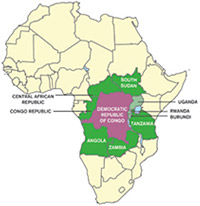CSR Performances
Content
The PCB industry witnesses stricter standards for quality evaluation from the perspective of roduct responsibility as key components of all electrical equipments and electronic appliances, and also fiercer competition to secure share of customer. The audits on the production process have been conducted with the consideration of social and environmental impact from the purchase of raw materials, and prompt response to customer requests has become more important for business.
Our Approach
ISU PETASYS has strengthened quality management throughout the production process, and promptly responded to customer requests according to the internal policies and systems for product responsibility. Moreover, the company objectively evaluates and manages the factors that can affect customer satisfaction and strives to maintain and reinforce the cooperation with customers.
ISU PETASYS is fully committed to prohibiting the use of conflict minerals collected in the disputed territories of nations such as the Democratic Republic of the Congo.
Introduction of conflict minerals
Conflict minerals refer to 3TF including Tantalum, Tin, Tungsten, and Gold which are mined from ten countries(*) including Democratic Republic of the Congo and nine adjoining countries or minerals or their derivatives of which proceeds are considered by the U.S. Secretary of State to be used to finance conflicts in troubled areas.
Humanitarian issues such as violation of human rights and labor exploitation of residents caused by armed forces are rampant in these regions. Proceeds generated from mining and distributing conflict minerals are used to finance and benefit armed forced both directly and indirectly.

With rising international concern against this issue, the U.S. Congress enacted the Dodd-Frank Wall Street Reform and Consumer Protection Act in July 2010. Pursuant to the announcement of detailed enforcement acts by the U.S. Securities and Exchange Commission (SEC) in August 2012, all U.S. listed companies are required to report and disclose information on the ‘use of conflict minerals’ to the SEC.
(*) Angola, Burundi, the Central African Republic, Congo, Rwanda, South Sudan, Tanzania, Uganda, Zambia
ISU PETASYS Conflict Minerals Management Policy
As a responsible corporate citizen, ISU Petasys ban the use of conflict minerals that are mined in conflict areas. We manage our supply chain based on the principle of an ethical distribution process. In support of our Conflict Minerals Policy, ISU Petasys will:
Implement procedures compliant with and in support of the activities of the EICC-GeSI Conflict Free Sourcing Initiative and the OECD Due Diligence Guidance.
Endeavor to trace the conflict minerals back to the source, at least to the smelter or refiner level through use of the EICC- GeSI Conflict Minerals Reporting Form (“Form”).
State that prohibiting to use conflict minerals from conflict areas on ISU Petasys Code of Conduct and promotes the Corporate Social Responsibility by adding ISU Petasys Code of Conduct to the supplier management regulation.
Establish a “Conflict Minerals Compliance Program” supported and sponsored by ABB’s Executive Committee to review the use of Conflict Minerals in our products and to be in a position to fulfill our reporting obligations to the SEC and respond to customer inquiries.

